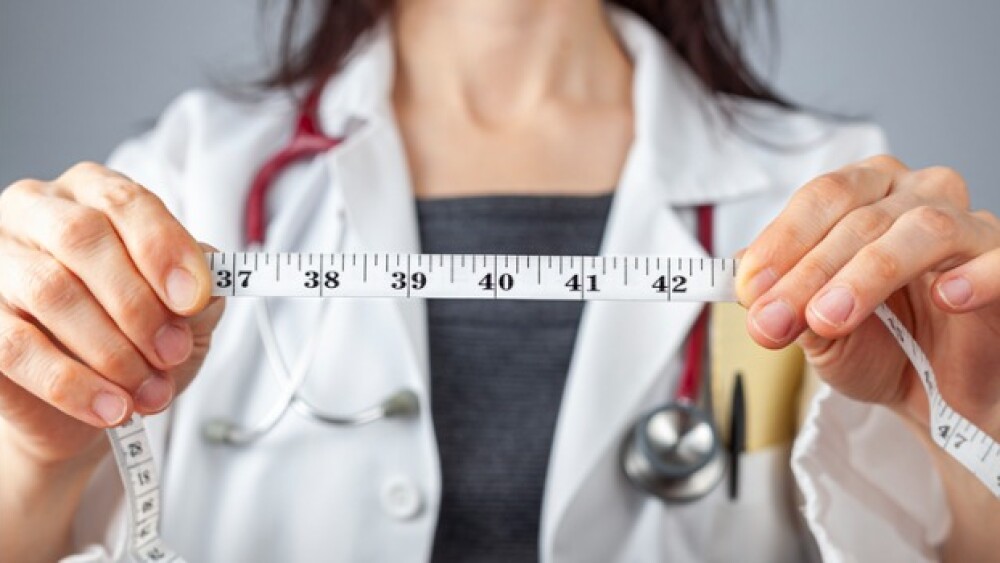The startup will use the money to fund a Phase II trial in combination with Eli Lilly’s Zepbound in the hopes of increased weight loss results, while attempting to protect body composition from muscle wasting.
Pictured: Doctor with tape measure/iStock, Grandbrothers
BioAge Labs raked in $170 million in Series D funding Tuesday for pharma’s hottest indication—obesity. The California-based startup will use the money to move its drug candidate into a Phase II trial in mid-2024.
The company, focused on longevity medicines to increase healthspan, has been garnering attention with its weight loss candidate. When used in combination with an incretin, BioAge’s apelin receptor APJ agonist decreases body mass while improving body composition—patients lose weight, not muscle.
Azelaprag mimics the activity of apelin, a peptide released in response to exercise, to act on skeletal muscle, heart and the central nervous system to regulate metabolism and promote muscle regeneration.
With muscle wasting a significant concern, BioAge believes its candidate has potential to be best-in-class for weight loss in obesity. Phase Ib data showed activating the apelin pathway resulted in significantly improved muscle physiology, promoted muscle metabolism and prevented atrophy in older volunteers on strict 10-day bed rest receiving azelaprag versus placebo. Preclinical studies showed the drug doubled weight loss achieved on incretin drugs alone.
Azelaprag is an oral drug, making it particularly attractive in a space where the most successful current drugs from Eli Lilly and Novo Nordisk are injectables.
BioAge has partnered with Eli Lilly, combining azelaprag with Zepbound in a Phase II trial with the primary objective of weight loss. BioAge CEO Kristen Fortney said in an interview with Fierce Biotech that she’s hoping adding azelaprag to Zepbound can boost average weight loss from 15% to 20%.
Funds from the Series D raise will support the trial. The financing was led by Sofinnova Investments and attracted over a dozen investors including RA Capital, Cormorant, SV Health, Lilly and Amgen.
Pharma and investors are spending money hand over fist in the weight loss market as it booms in popularity. Lilly’s Zepbound brought in $175 million in sales in the two months after its launch. Competitor Novo Nordisk generated $4.5 billion in sales in 2023 for its Wegovy injection.
The market for obesity drugs is set to skyrocket, with Goldman Sachs analyst projections as high as $100 billion by 2030.
Kate Goodwin is a freelance life science writer based in Des Moines, Iowa. She can be reached at kate.goodwin@biospace.com and on LinkedIn.






